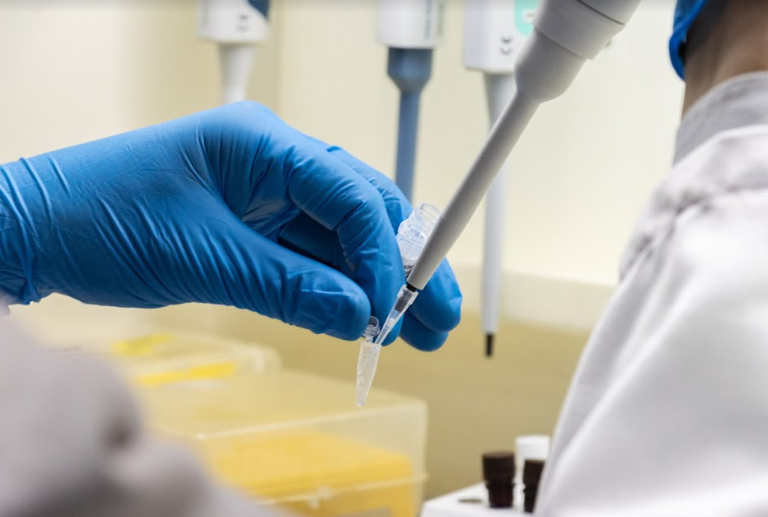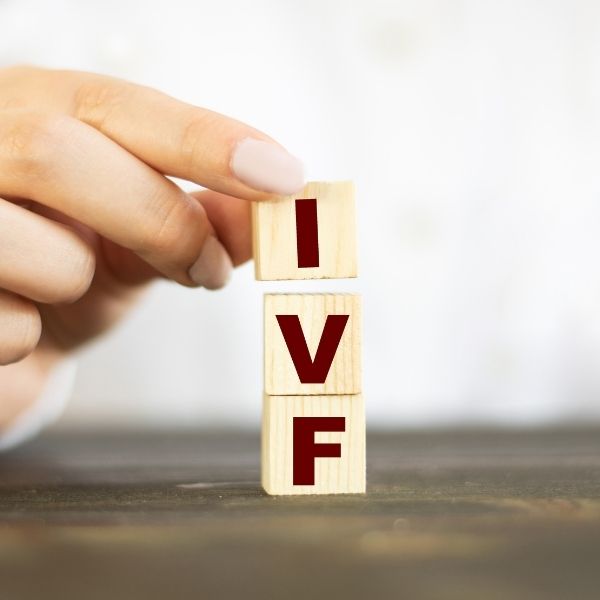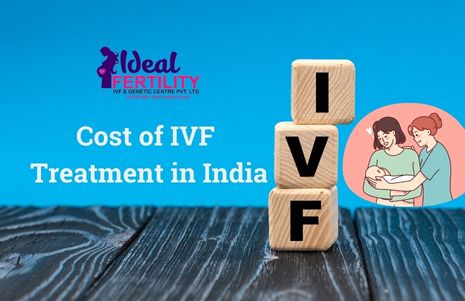Table of Contents
Embarking on the journey towards parenthood through In Vitro Fertilization (IVF) is both exciting and challenging. One of the most pressing concerns for couples considering this option is understanding the costs involved. IVF treatment can be expensive, but knowing exactly what you are paying for will give you a clearer picture and help you plan better. This article breaks down the components of IVF treatment costs in India, providing you with a detailed guide to each expense involved.
Initial Fertility Check and Consultation
The IVF journey begins with an initial consultation with a fertility specialist. During this meeting, the doctor will assess the couple’s medical history, previous fertility issues, and any treatments undergone. This is an important step because it sets the foundation for the personalized treatment plan tailored to your specific needs.
Diagnostic Tests
To identify the root cause of infertility, both partners will be asked to undergo several diagnostic tests. These could include basic blood tests to check hormone levels and ultrasound scans for the woman, and a semen analysis for the man. These tests help in pinpointing the exact challenges affecting fertility. The costs for these initial diagnostic procedures can form a significant part of the overall IVF expenses, as they provide the necessary information for developing a customized treatment plan.
Medications
Medications are a critical component of the IVF process, and their costs can vary depending on the patient’s individual response to treatment. One of the primary objectives of IVF is to stimulate the ovaries to produce multiple eggs, which is achieved through hormone injections and various medications.

The costs of these ovarian stimulation drugs are influenced by several factors, including the dosage and the specific type of medication prescribed. In some cases, patients may need higher doses of these drugs, which can increase the overall cost of the medication.
Beyond stimulating the ovaries, medications are also necessary to provide hormonal support, which is crucial for preparing the uterine lining for implantation. These hormonal supplements help ensure that the uterus creates a suitable environment for the embryo to implant and develop. The costs of these hormonal support drugs add to the total expense of IVF, making them an integral part of the treatment’s financial considerations.
IVF Monitoring and Follow-Up Sessions
Throughout the IVF process, the progress of the treatment needs to be closely monitored to ensure that everything is going according to plan.
Ultrasound and Blood Tests
Regular ultrasound scans and blood tests are conducted to track the response of the ovaries and adjust medications accordingly. These tests ensure that the eggs are maturing properly, and the treatment plan is modified if necessary. Each visit and test come with a fee, and since multiple monitoring sessions are required, this aspect contributes to the overall cost of IVF.
Egg Retrieval
Egg retrieval is a key part of the IVF process and is performed under sedation or anesthesia. The procedure involves collecting the mature eggs from the ovaries, which are then used for fertilization.
Treatment Expenses
This stage of the treatment is relatively costly because it involves both medical expertise and the use of specialized equipment. After retrieval, the eggs are transferred to the lab for fertilization. Since this procedure is done in a clinical setting with medical professionals, it constitutes a significant portion of the IVF treatment cost.
Laboratory Fees
After the eggs are retrieved, they are handed over to the embryologist for fertilization. This part of the process involves the expertise of laboratory staff, equipment, and technologies.
Fertilization Methods
Depending on the case, the eggs can either be fertilized through conventional IVF, where eggs are mixed with sperm in a dish, or through Intracytoplasmic Sperm Injection (ICSI), where a single sperm is injected directly into the egg. ICSI is often recommended in cases of male factor infertility, and the costs associated with this method tend to be higher than those of conventional IVF.
Embryo Transfer
Once the embryos have matured and reached the appropriate stage of development, they are ready to be transferred into the uterus. While the procedure is relatively straightforward, it requires a high level of precision and care. The embryo transfer is conducted in a clinical setting and involves the expertise of experienced medical professionals, which makes this a crucial step in the IVF process. Naturally, this part of the procedure adds to the overall cost of treatment, given the specialized skills and equipment required.
In some instances, ultrasound guidance is utilized during the embryo transfer. This ensures that the embryos are positioned in the optimal location within the uterus, increasing the chances of successful implantation. When ultrasound guidance is used, it may incur additional charges, further contributing to the total expense of the procedure. This added precision, however, can play an important role in improving the likelihood of a positive outcome, making it a valuable aspect of the IVF process when necessary.
Additional Techniques and Procedures

IVF treatment can be customized with additional techniques based on the couple’s needs. These optional services, while beneficial, add to the overall cost of IVF.
Embryo Freezing
Sometimes, more embryos are created than can be transferred in one cycle. In such cases, the extra embryos can be frozen for future use. The costs for embryo freezing and storage are usually part of the IVF package, but long-term storage may incur additional charges.
Preimplantation Genetic Testing (PGT)
PGT is an optional procedure that involves screening the embryos for genetic abnormalities before they are transferred. This is especially useful for couples with a history of genetic disorders or recurrent miscarriages. The cost of PGT is an added expense that can significantly increase the overall IVF cost.
Embryo Hatching Support Process
In some cases, the embryologist may recommend assisted hatching, a technique used to help the embryo implant in the uterus more effectively. This procedure also incurs an additional cost within the IVF package.
Costs after Treatment Completion
Once the embryo transfer is complete, there are additional expenses related to confirming and monitoring the pregnancy.
Pregnancy Tests
After the embryo transfer, pregnancy is confirmed through blood tests, which measure the levels of human chorionic gonadotropin (hCG) in the body. These tests are part of the post-treatment process and add to the total IVF expenses.
Early Pregnancy Monitoring
Once pregnancy is confirmed, early ultrasound scans are required to ensure that the pregnancy is progressing as expected. These scans monitor the development of the embryo and are necessary for detecting any early complications. The cost of these scans is included in the post-treatment phase of IVF.
Other Associated Costs
In addition to the core expenses of IVF treatment, there are several other costs that contribute to the overall financial burden, though they might not be immediately apparent. One such cost is the fees associated with hospital and clinic use. These charges encompass the administrative costs and the use of medical staff and resources throughout the treatment. The clinic’s infrastructure and personnel play an essential role in ensuring the smooth execution of the procedure, and these fees are factored into the total expense.
For couples traveling from different cities or even countries to undergo IVF treatment, travel and accommodation costs become another significant consideration. Although these expenses are not part of the standard IVF package, they are a critical part of the overall cost when treatment is sought in a location far from home. This can include transportation, hotel stays, and other logistics related to being away for extended periods. Together, these associated costs must be factored into the financial planning for IVF.
Insurance and Payment Solutions
IVF treatment in India can be expensive, but there are several ways to manage these costs. While most health insurance policies don’t cover the entire cost of IVF, some plans do provide partial coverage for specific aspects, such as medications or diagnostic tests. It’s essential to speak with your insurance provider to understand if any part of the treatment is included in your plan, as this could help in lowering the overall expenses.
Additionally, many fertility clinics offer flexible payment solutions to assist couples with the financial burden of IVF. These solutions may include installment plans or loans, allowing patients to pay in manageable portions over time. By utilizing these financing options, the cost of IVF can become more affordable, easing the strain of paying large sums upfront. Couples should explore both insurance benefits and clinic payment plans to find the best way to cover the expenses associated with IVF.
Conclusion
Understanding the components of IVF treatment costs in India helps couples prepare both emotionally and financially for their fertility journey. From initial consultations to post-treatment monitoring, knowing exactly what is included in the price can reduce the stress and uncertainty often associated with IVF. By being well-informed, couples can make more confident decisions and ensure that they are financially prepared for every step of the IVF process.

